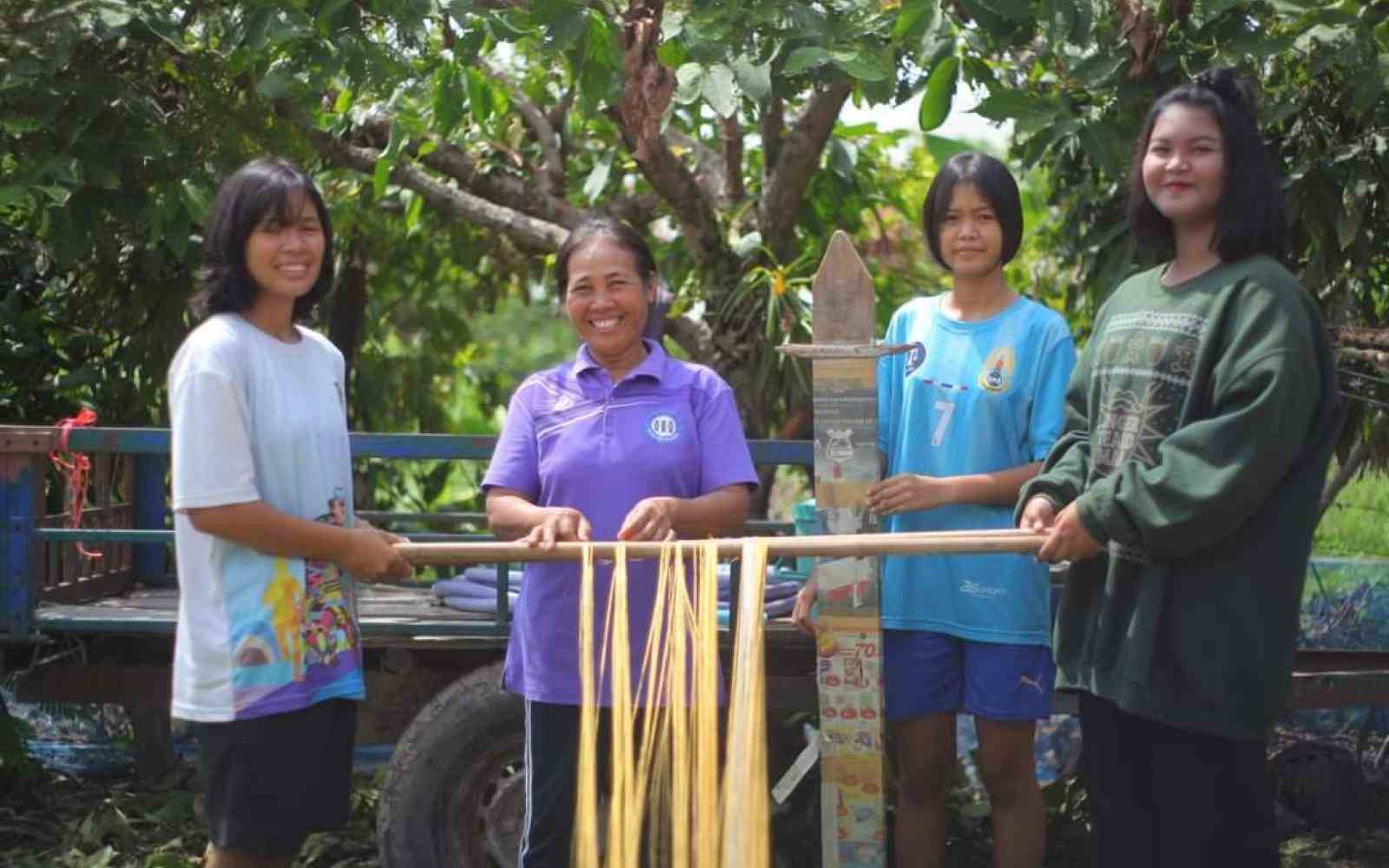Weave Love
By Supaporn Thongsook (Year 2021)
Supaporn Thongsook's project, Weave Love, part of the DIWA Call for Collaboration 2023, is focused on empowering women weavers in Surin Province, Thailand, by promoting knowledge exchange and sustainable practices in silk weaving.
